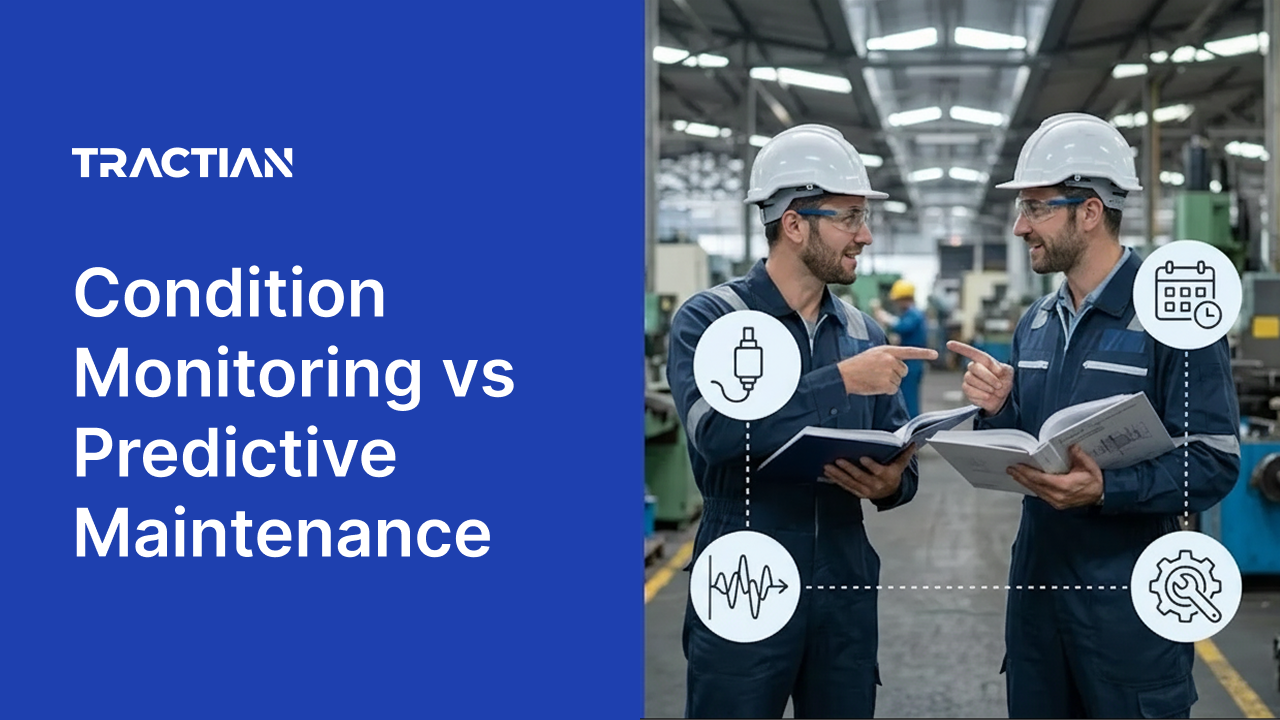
Condition Monitoring vs Predictive Maintenance: Key Differences Explained
Condition monitoring detects problems now. Predictive maintenance forecasts failures weeks ahead. Learn how each strategy works and which fits your operation.
Keep readingLatest Articles
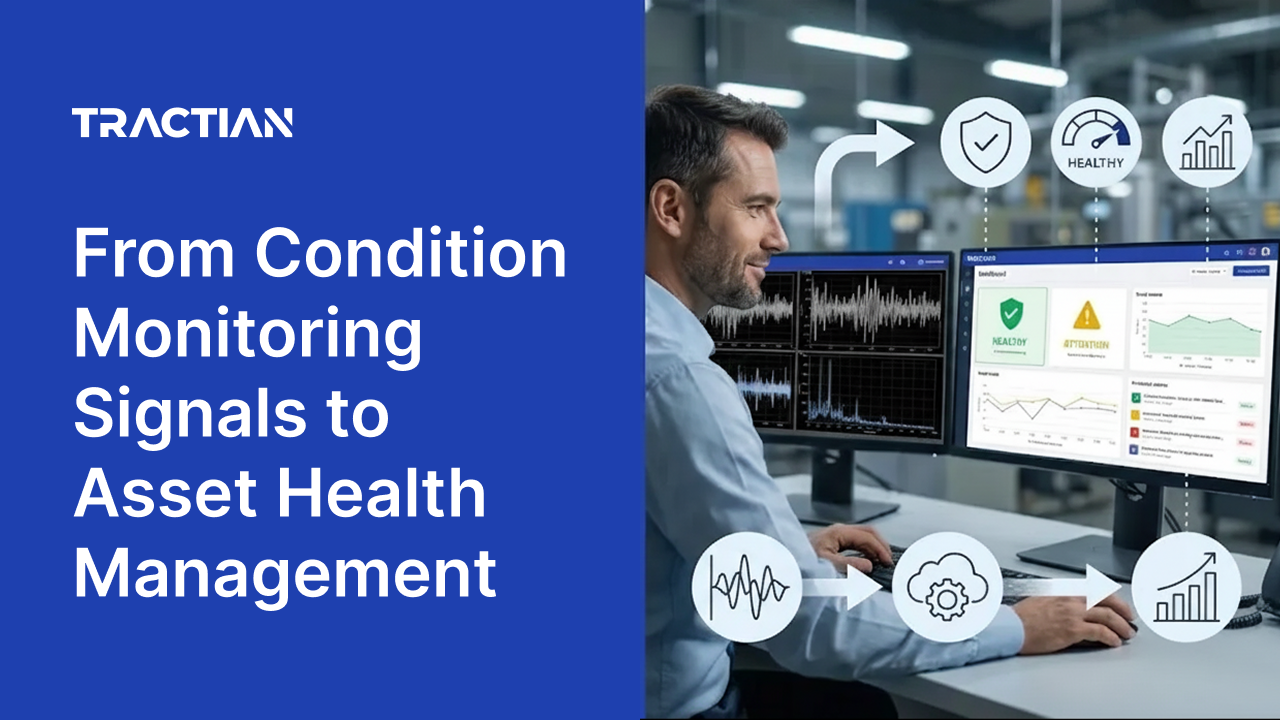
From Condition Monitoring Signals to Asset Health Management
Asset health management goes beyond signal monitoring. Learn what decision-grade condition monitoring requires and how to turn data into confident action.
Michael Smith
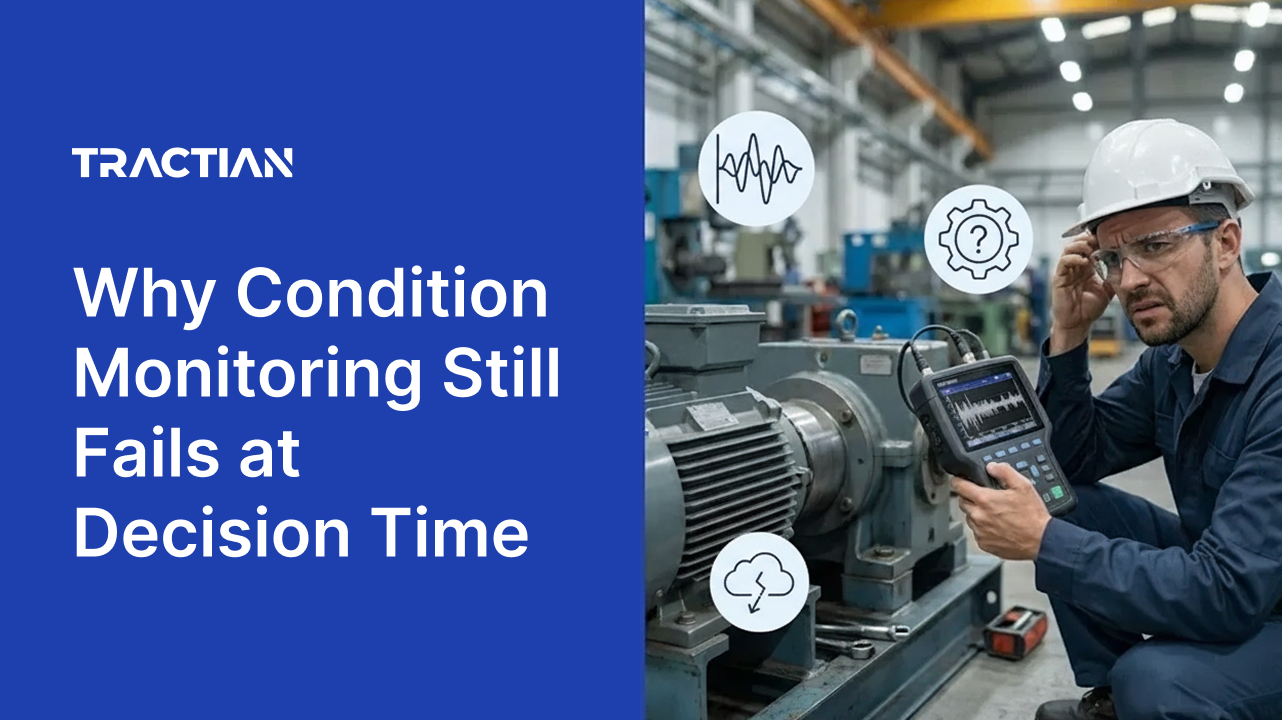
Why Condition Monitoring Still Fails at Decision Time
Condition monitoring generates data, but data doesn’t make decisions. Learn why most systems fail at decision time and what decision-grade monitoring requires.
Michael Smith
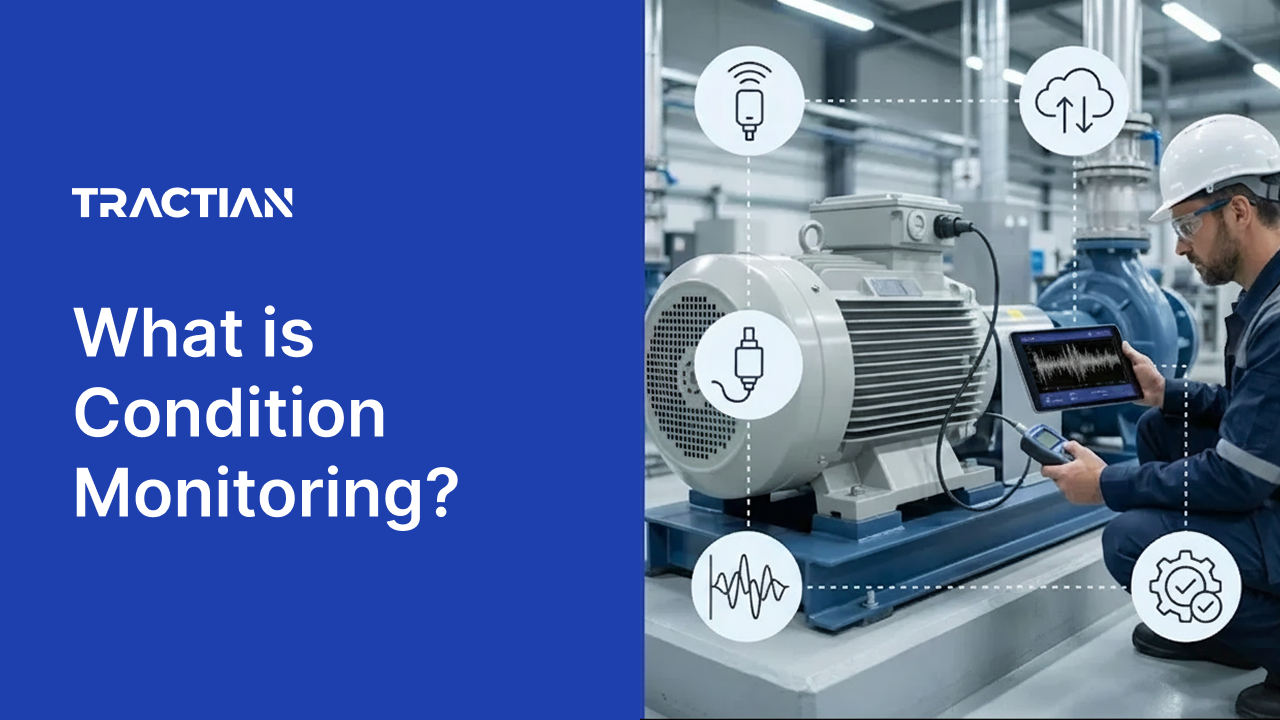
What Is Condition Monitoring? A Modern Definition
Detect equipment failures early with vibration analysis, thermography, and oil monitoring. Build a CbM program that turns real-time data into maintenance action.
Michael Smith
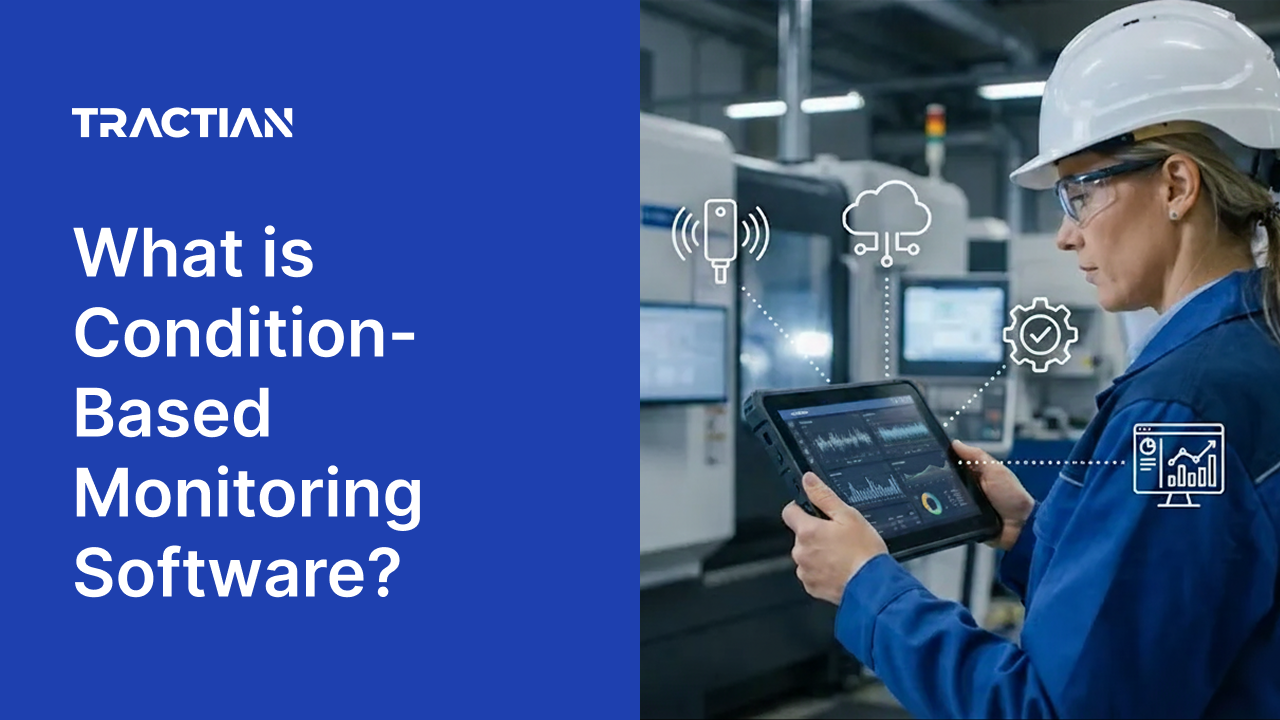
Condition-Based Monitoring Software: A Practical Guide
Detect equipment faults before they cause failures. Learn what condition-based monitoring software is, how it works, and how to get ROI from your investment.
Michael Smith

Asset Condition Monitoring Software: Guide for Industrial Teams
Learn what asset condition monitoring software does, how it works, and how industrial teams use it to detect failures early and improve reliability at scale.
Michael Smith
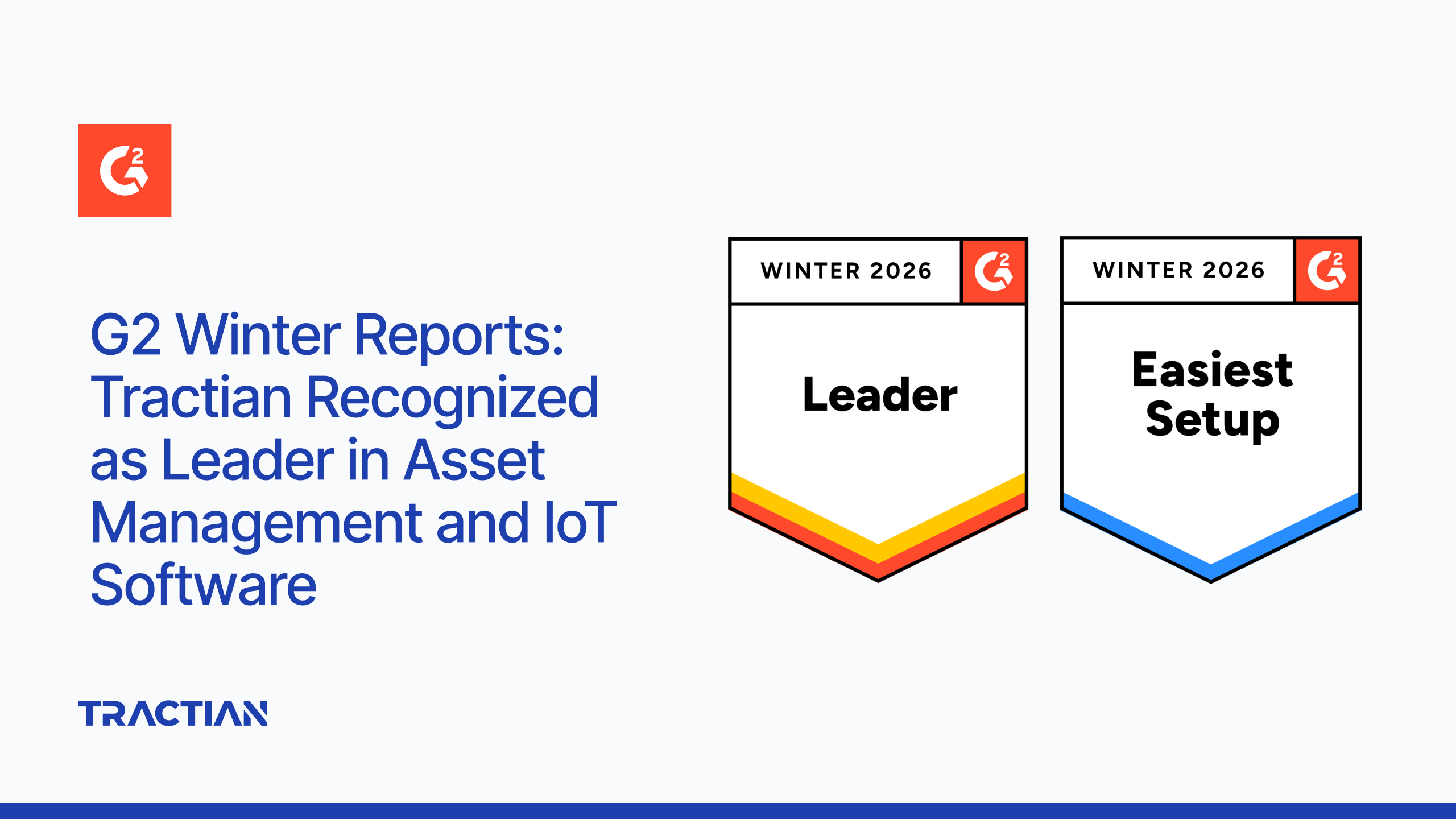
G2 Winter 2026 Reports: Tractian Sets the Standard for Asset Management & Industrial IoT
Tractian set the standard in G2's Winter 2026 Reports and continues to lead the way in connecting machine health, maintenance execution, and asset management in a single, seamless experience.
Igor Marinelli

5 Best Wireless Condition Monitoring Sensors
Compare the best condition monitoring sensors in 2026 for industrial teams. Learn about features, capabilities, notable downsides, and industry fit.
Michael Smith
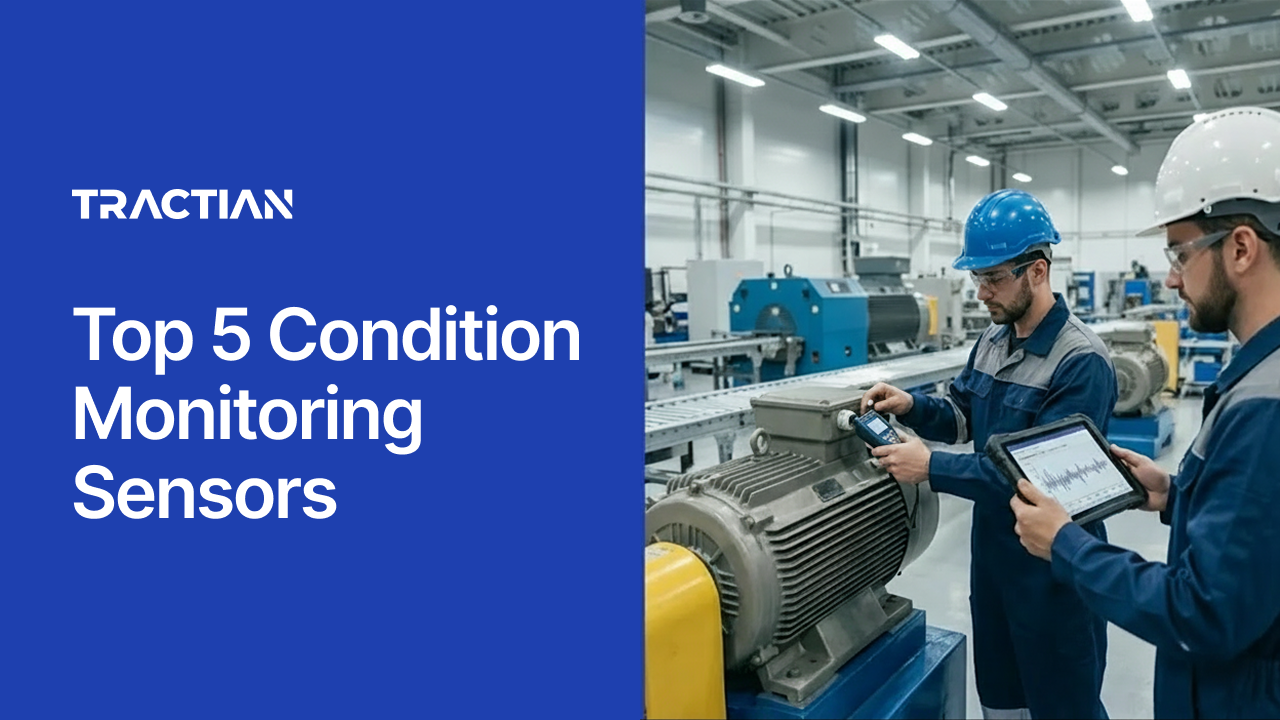
Top 5 Condition Monitoring Sensors in 2026
Compare the best condition monitoring sensors in 2026 for industrial teams. Learn about features, capabilities, notable downsides, and industry fit.
Michael Smith

Top 3 Fluke Connect Alternatives in 2026
Fluke Connect delivers wireless condition monitoring through the 3561 FC and 3563 Analysis Vibration Sensor systems paired with Fluke Connect software and eMaint CMMS integration. The company leverages its measurement-instrument heritage to offer vibration sensors with piezoelectric and MEMS technologies, capturing data at frequencies ranging from 10 Hz to 10,000 Hz, depending on the model. Fluke's solution combines hardware, software, and analyst services in a package that requires configurat
Michael Smith

Top 3 KCF Technologies Alternatives in 2026
KCF Technologies delivers wireless condition monitoring through its SMARTdiagnostics platform, combining high-frequency vibration sensors with multi-parameter sensing capabilities including pressure, oil humidity, and electrical signature analysis. The company's base hub aggregates multiple sensor types into an analytics layer using machine learning trained on their datasets. KCF wireless sensors offer configurable sampling rates up to once per minute, full-spectrum data capture, and battery l
Michael Smith

Top 3 Augury Alternatives in 2026
Augury’s Halo R4000 sensor platform captures vibration, temperature, and magnetic field data to detect both mechanical and electrical anomalies in industrial equipment. For those who want ultrasound capabilities, they require a separate sensor. The platform promises guaranteed diagnostics backed by insurance coverage up to $150,000 per machine annually. However, knowing how much Augury would cost would require engaging with their sales team and this can complicate budgeting and total cost calc
Michael Smith

The 3 Best Waites Sensor Technologies Alternatives in 2026
Waites offers a wireless condition monitoring service built around its SM6 vibration/temperature sensors, cloud software, and a 24/7 analyst team that interprets data and advises maintenance actions. The pitch centers on plug-and-play deployment, fast time-to-value, and minimal IT requirements for mid-market operations and facilities teams. That said, the platform’s current focus appears to be limited to vibration and temperature monitoring, and details about hazardous-area certifications are
Michael Smith
Comprehensive free materials for your maintenance and reliability
Get free access to materials for increased productivity and an optimized maintenance routine.